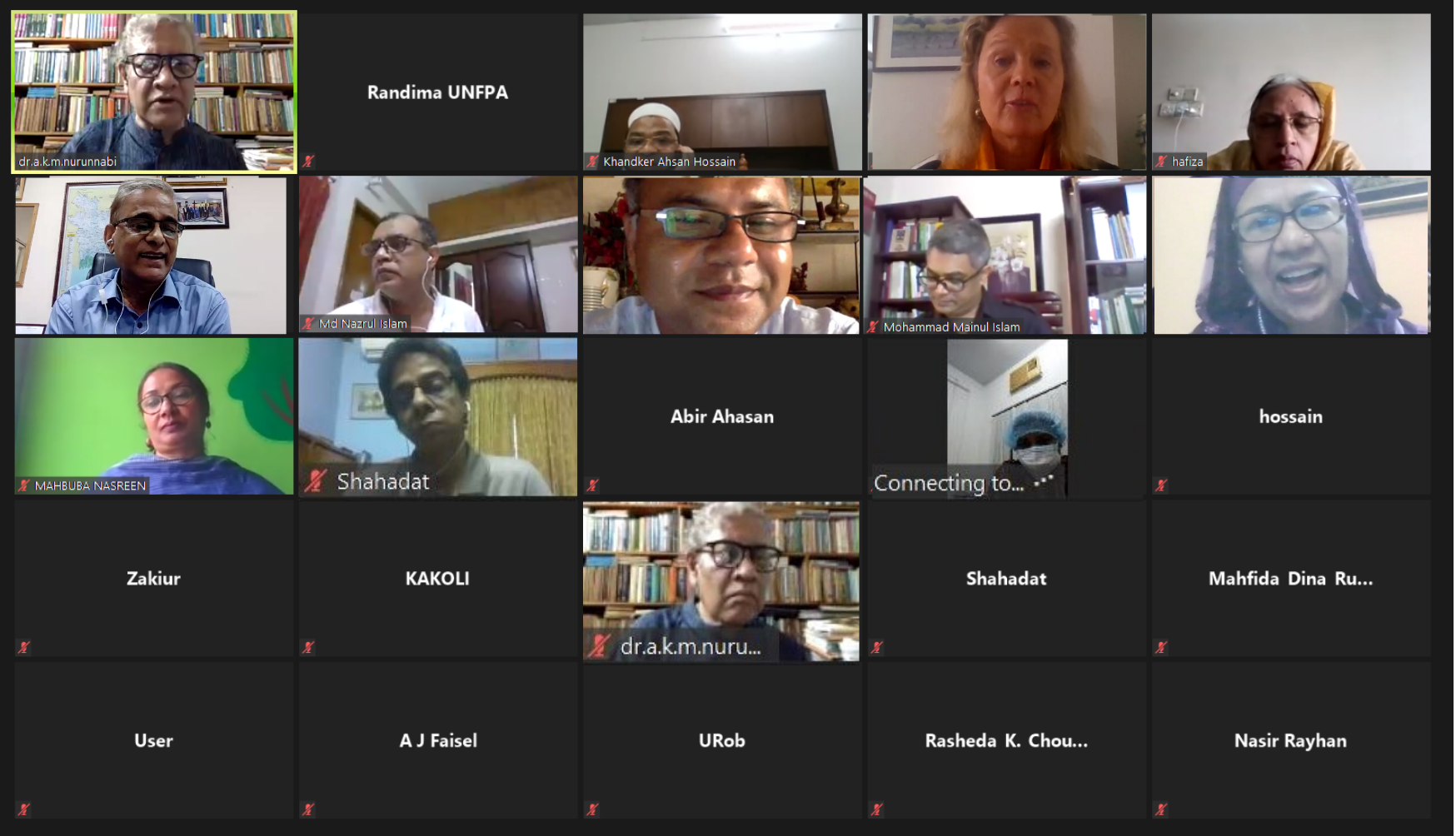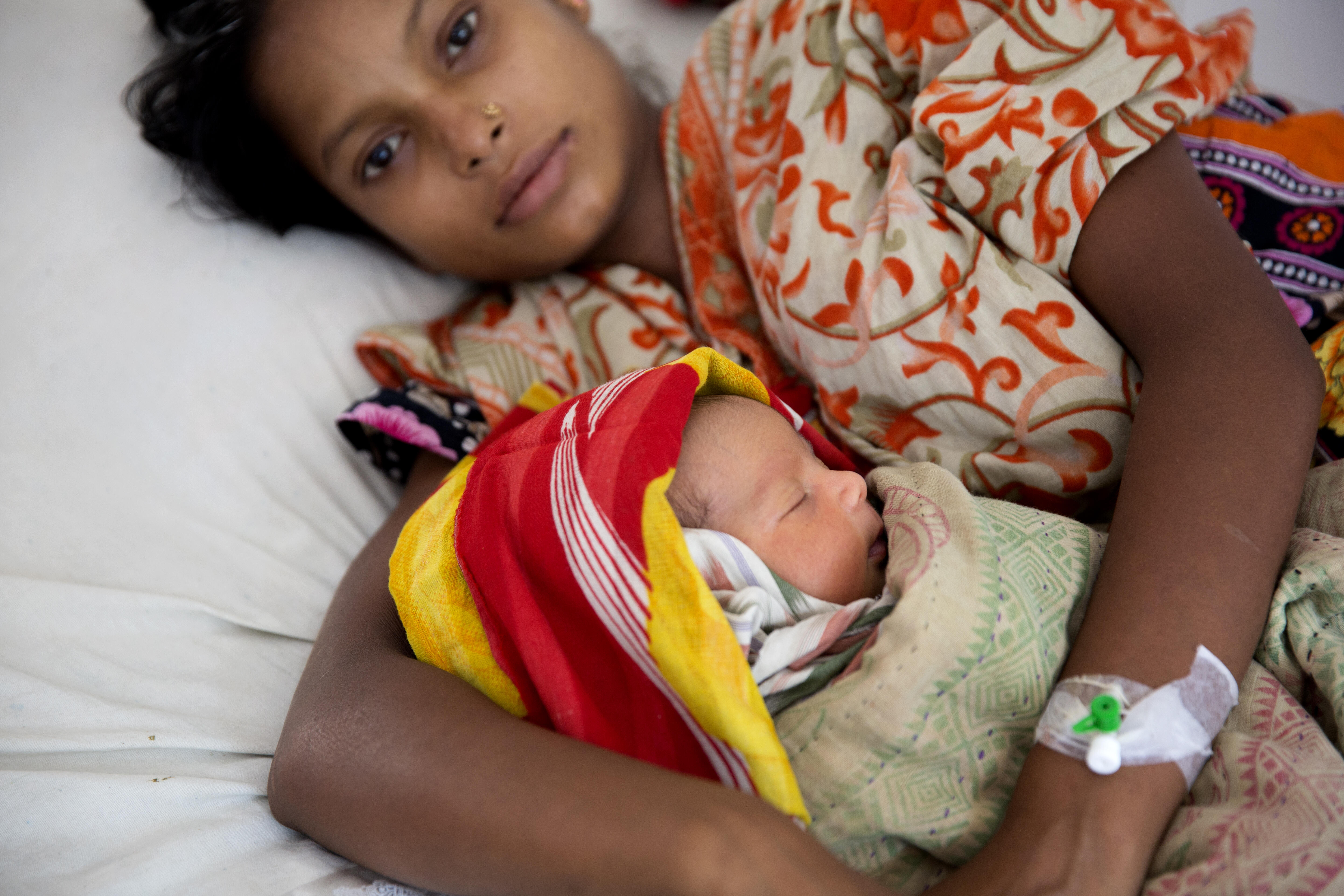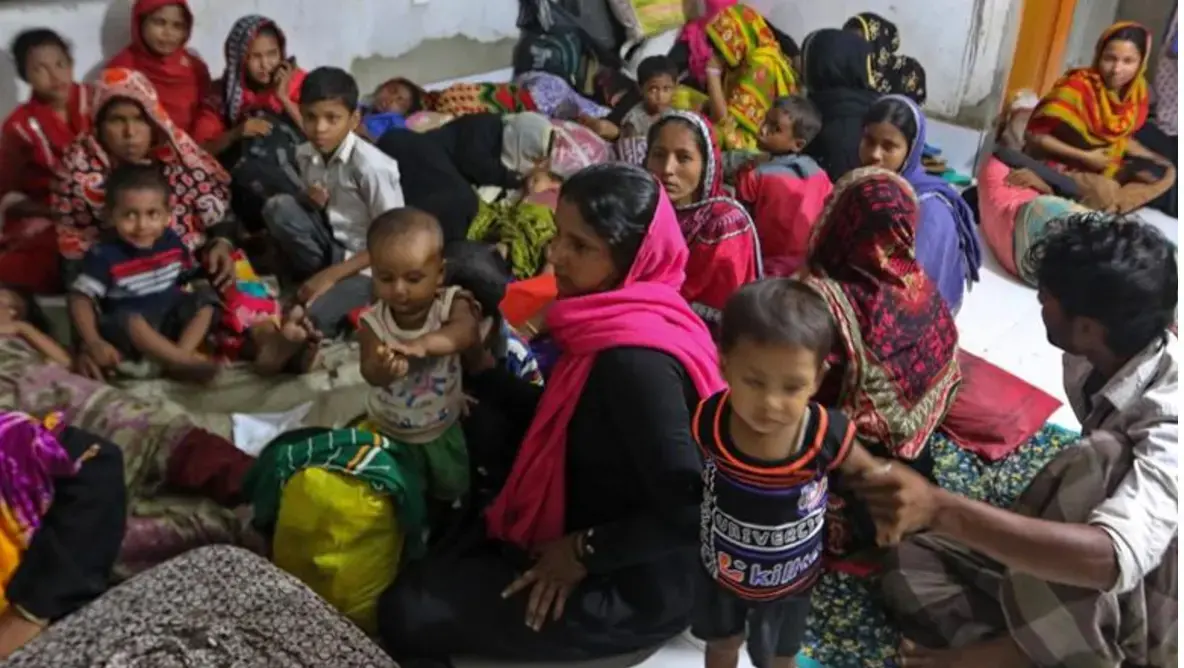28 June 2020, Dhaka, Bangladesh - The COVID-19 pandemic has had a profound impact on the delivery of sexual and reproductive health services in Bangladesh, including those related maternal and child health. Multiple challenges to achieving the goal of zero preventable maternal deaths have emerged as a result of the pandemic. Addressing these issues, The Population Expert Group held its sixth meeting on Sunday 28 June 2020. The Population Expert Group is a think-tank that helps the General Economic Division (GED) to promote the International Conference on Population and Development (ICPD) and Sustainable Development Goals (SDG) agenda and to generate evidence-based information on critical population dynamics and its linkages to development.
The Senior Secretary of GED’s Planning Commission, Mr. Shamsul Alam, chaired the meeting, while Dr. Abu Jamil Faisel, a prominent sexual and reproductive health specialist, delivered the keynote presentation, which focused on the recent trends in the uptake of essential sexual and reproductive health services, especially those pertaining to maternal and child health. The presentation was followed by a vigorous panel discussion involving a diverse group of experts representing the government, the United Nations, national and international development organizations, academia and civil society.

One of the panelists, the Deputy Representative of UNFPA Bangladesh, Dr. Eiko Narita, attributed the disruption in the delivery of essential sexual and reproductive health services to the multifaceted barriers imposed by the pandemic. As the government of Bangladesh grapples with containing the virus with a debilitated health system and limited logistics, there has been a downward trend in the uptake of maternal and other reproductive health services, including family planning.
The experts expressed concern that the most marginalized and vulnerable people, especially the urban poor, are likely to suffer the most from this cutoff. In worst case, this standstill in the delivery of essential sexual and reproductive health services could result in a dramatic rise in in unintended pregnancies, gender-based violence and child marriage. To prevent this from happening, the panelists agreed that reinvigorating the health system with a better coordinated delivery framework that prioritizes the most vulnerable groups should be prioritized.
In her closing remarks to the session, UNFPA Representative in Bangladesh, Dr. Asa Torkelsson, also emphasized cooperation between all stakeholders as a key to solving these emerging challenges. "We must work together and continue to innovate for solutions. At the same time, it is imperative that maternal healthcare and prevention and response to gender-based violence is integrated into population plans and policies. With our hands joined together, we - the UN, government, NGOs, development partners, the private sector and the civil society- as the united front, can realize our vision for a world where there are zero preventable maternal deaths, zero unmet need of family planning, and zero incidents of gender-based violence and harmful practices against women and girls", she said.
The Senior Secretary of GED’s Planning Commission also highlighted that GED is currently drafting the 8th Five Year Plan (FYP), which will be completed by July 2020. He asserted that recommendations made by the expert panel were duly noted, and would be taken into account as inputs for the 8th FYP, as well as in the preparation of other national, and sectoral plans and policies.





